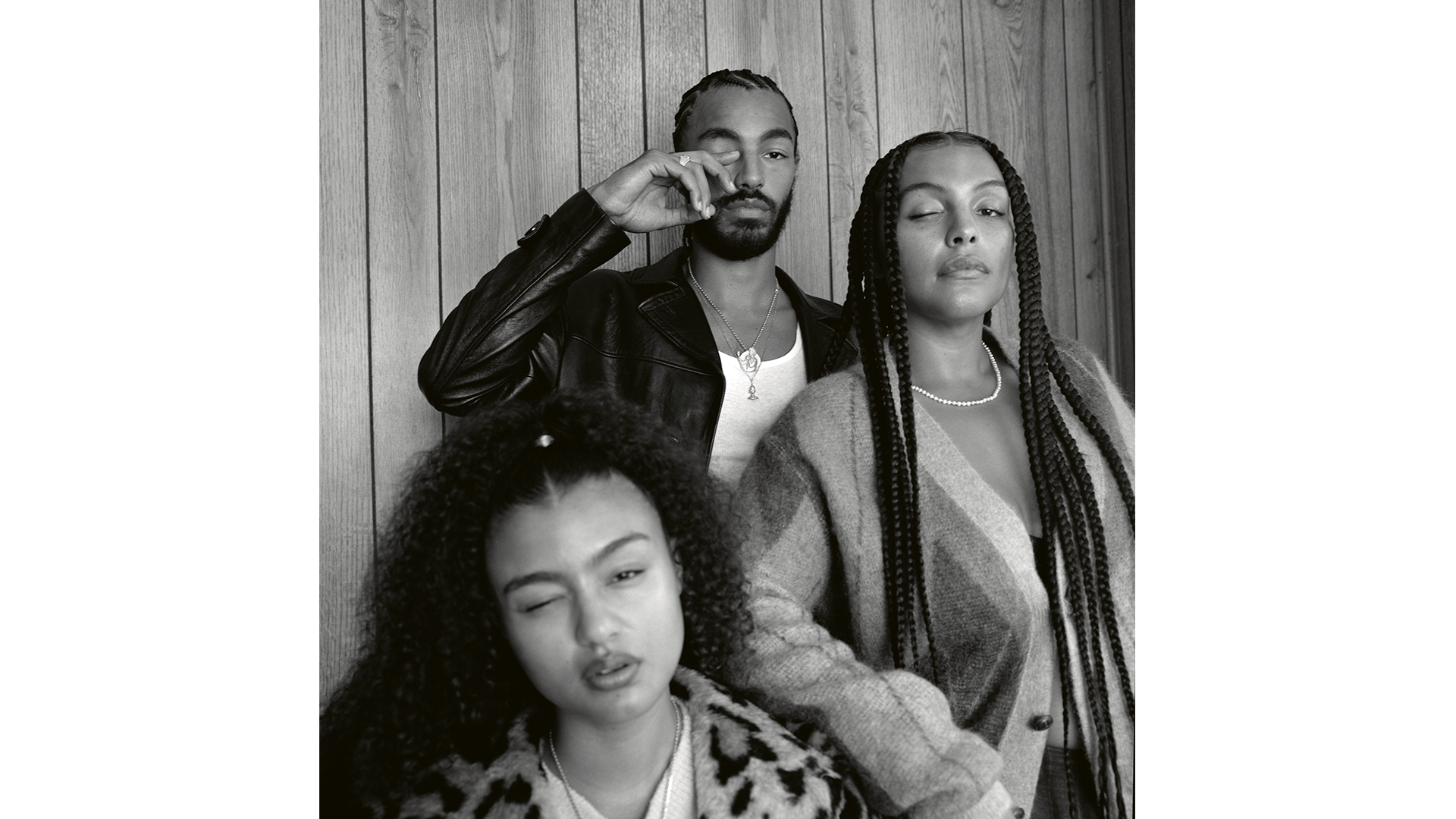Paloma, Sage and Ama Elsesser’s story originally appeared in i-D’s 40th Anniversary Issue, no. 361, Winter 2020. Order your copy here.
When we think about legacy, we often think of those who’ve come before us, the older and wiser changemakers who have had a larger impact on our lives than we can ever imagine. But over the last few months, as young activists demand justice in the streets and at the polls, the one thing that’s become abundantly clear is that this awareness, this desire for change and the dedicated intention to see it through, will be our generation’s legacy. This isn’t to say that the knowledge and values passed down from generation to generation are any less significant.
For Paloma, Sage and Ama Elsesser, this is what’s empowered each of them to go forth and pursue their own trailblazing careers in fashion, modelling, skateboarding and whatever they might choose to conquer next. Their parents, grandparents and chosen family encourage them to speak up, to take up space and most importantly, to carve out space for those that will come after them. Part of i-D’s own family for quite some time now, we’d say that Paloma, Sage and Ama are the faces of a new era in fashion, but we’ve known this all along.
Here, the Elsessers sit down with another one of our own, Awake NY designer Angelo Baque, a friend through Supreme and New York’s downtown skate scene, to talk about how their upbringing inspired their individual sense of self, what it’s like navigating the fashion industry together, as siblings, and the legacy they hope to leave behind.
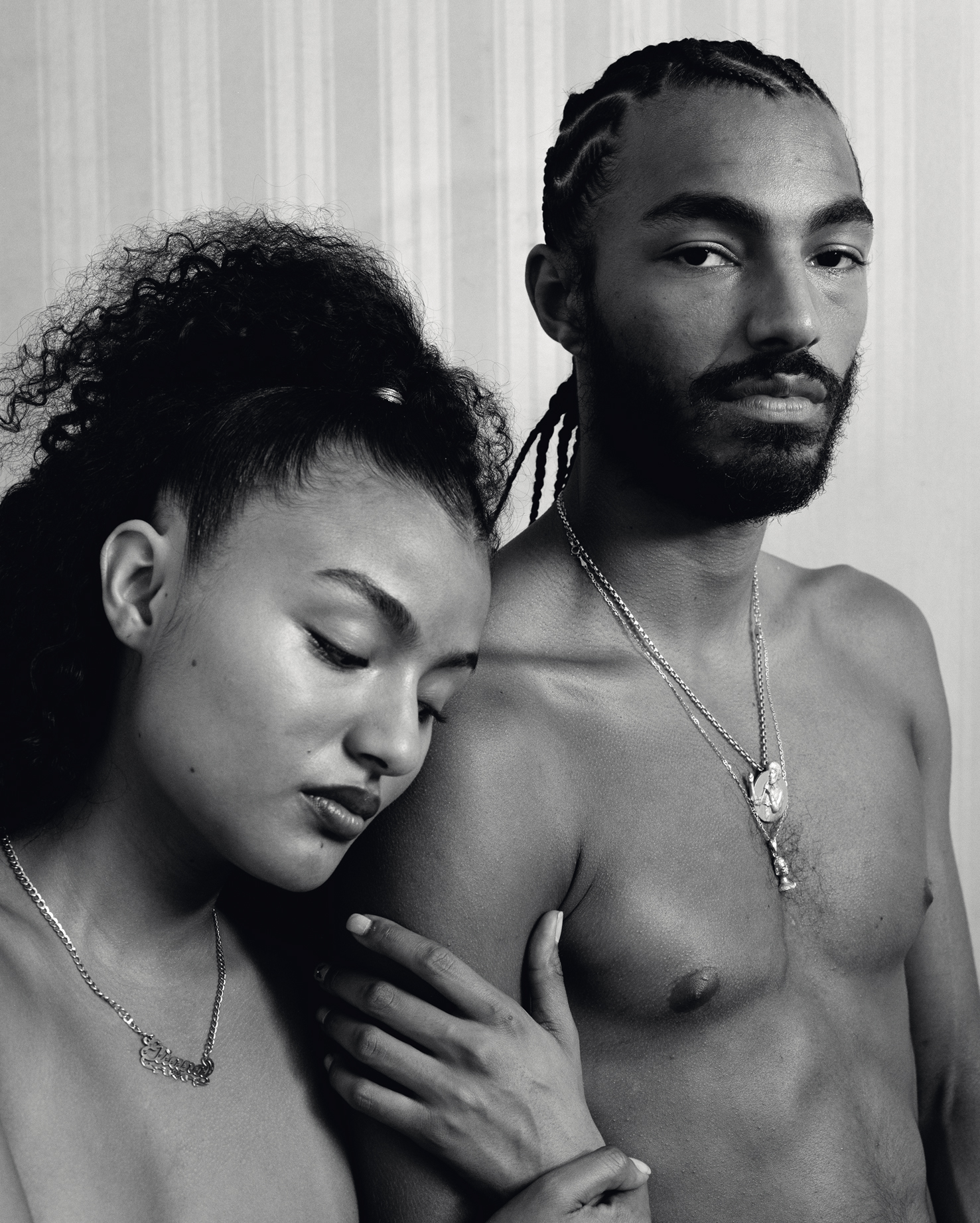
Angelo: I’m really flattered to be a part of this because I feel like part of the Elsesser family. I’m super grateful to be a part of this process with you guys.
Ama: We’re grateful for you.
I remember meeting Sage through Supreme, and the minute I met him I had this big brotherly feeling, and in a way that has been the outline for my relationship with you all individually.
Paloma: It was really comforting, really valuable and important for us that when Sage was working with Supreme you came into the fold as someone who could impart some male wisdom and safety to him in this new world that he was entering at such a young age. I know that we jam him up as sisters, so it was comforting to know that there was a Brown man in the company taking him under his wing; there’s someone I see, I understand and I respect, who has his back. Then, our relationship, it was so natural. I really see you as my brother, in all of the same ways that I see my own brother – your nuances, your strengths, your weakness and I love you for it. It’s been such an incredible journey, and I very much still feel like you are in our lives for a reason. I don’t feel like it’s a social, downtown thing. It’s like, ‘Oh, that’s my family’.
Sage: I knew when I walked into the Supreme office and you welcomed me, it was an unspoken commitment that you made. I felt like I was then able to confide in you and talk with you about stuff outside of working for Supreme. We started going on lookbook trips and we started to bond more, it was just so many things that we shared and had in common. And then a lot of dear moments, taking me to go get my gold, my rings. I remember you telling me, ‘Oh, you should start wearing overcoats’, and that winter I went and I got a couple from the shop and of course, Paloma stole all of them. But you know, it’s the little things like that.
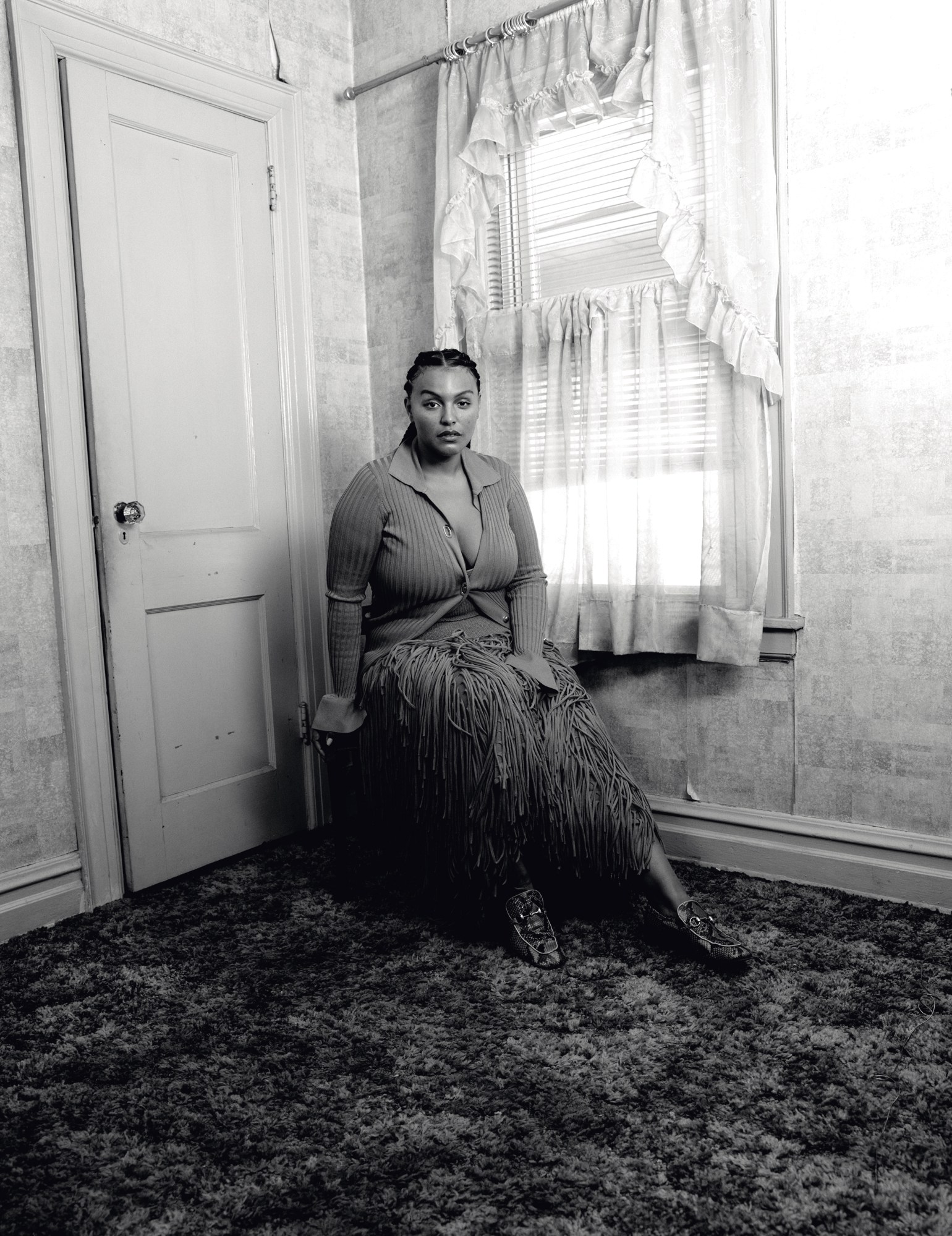

One thing that I’ve noticed over the years is how outspoken all three of you are, and how you’re able to, as individuals, express yourselves. I’ve always really admired that. There’s a lot of intention. Where does that voice and that freedom come from?
Sage: I think that our upbringing was very unique. It wasn’t easy but we had an amazing family dynamic that I’m very grateful for, a lot of knowledge that was bestowed upon us. We were privileged enough to live with our grandfather, Madison. A lot of people don’t get to see their grandparents, we saw them every morning because we lived above them.
Ama: Our grandfather would drive us all to different schools, drive us all over town.
Sage: He enjoyed it. It wasn’t a job. Our mother is Buddhist, so we grew up listening to the chanting. Our father was a multi-faceted artist and musician, both our parents were musicians, so they were always just putting us on to things that other kids weren’t really into. It makes me realise that when you become a father, you really begin to understand what it is to be a parent. My mom fully lives her life for us. At the same time, I recognise how much of my grandfather is within her and the way that she doesn’t do it as her job, but she enjoys it. I think that’s really where it comes from, our mother and our father, our very unique upbringing.
Ama: All of us, obviously, we have different pieces of our parents in us in different ways.
Paloma: I notice us being our parents and our grandparents’ children. I think that we really are our environment. We’re all intensely imperfect, but we are all individuals who have been given permission to think and to speak how we think. What comes with that is that we’re all really emotional, we are all really expansive and reactive. It’s not an accident that we all do different stuff but we’re all so deeply connected. It’s not an accident that we’d be covered together in this way, but we’re not just doing a cover together because we’re a family. It’s because we each have something to offer, and that definitely was the assumption in the environment that we grew up in.
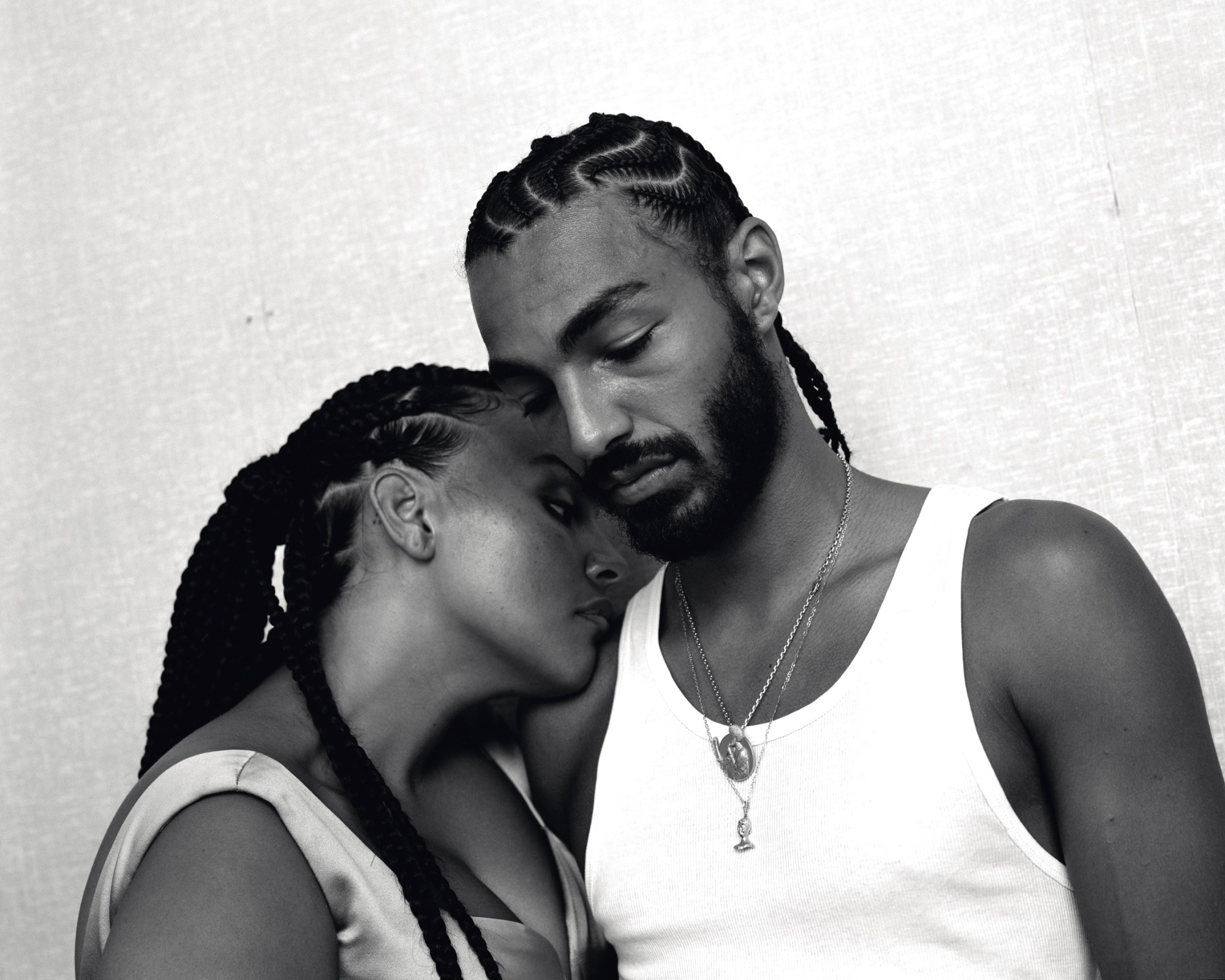
I see that. I see the beauty individually and being part of this Elsesser family upbringing. As a family navigating the fashion industry together, and the impact you’ve had on the fashion industry as a family, what does that mean to you?
Paloma: I think, again, it’s a reflection of our environment. When I went out into the world or when I saw my peers at private schools, I felt imperfect, but at home, when it came to appearance or emotional wellbeing it was very affirming. So, when I stepped into the industry, I would be constantly asked about where I get my confidence from — which is low-key fatphobic and annoying to even ask — but in general, I felt like I had an armour around it, because both of my parents told me that I was beautiful and smart. I’ve been able to interlace who I am and what I think about my identity into this industry. I’m so proud of how Ama is using their body and their movement to really create space in it. Obviously, Sage is the face of an era — what the intersection of fashion, skating and culture is — and he’s only 23. Think about what Supreme looked like when the first lookbook he did came out and you see his trajectory, but you see what has changed — what Supreme is now and what skateboarding is now. He’s not just a skateboarder. He’s beautiful and that nasty ass sex symbol cover he just put out for i-D in the summer has me fucked up! But you know, as crazy as it is, it just makes sense. I can’t even describe how lucky I feel to move through this with them. We all get to be anchored and what we do is to make our grandfather proud, make our ancestors proud.
Ama: I’m so thankful that we, personally, have things that we deal with and we’re so sensitive around, and we know that we have a safe space to talk about that within our tribe and our people. We don’t even need to speak on it. I wonder why I even do half the stuff that I do, and then I remember that I do it because I get seen by the people that love me and that is super-affirming for all of our different, separate lives.
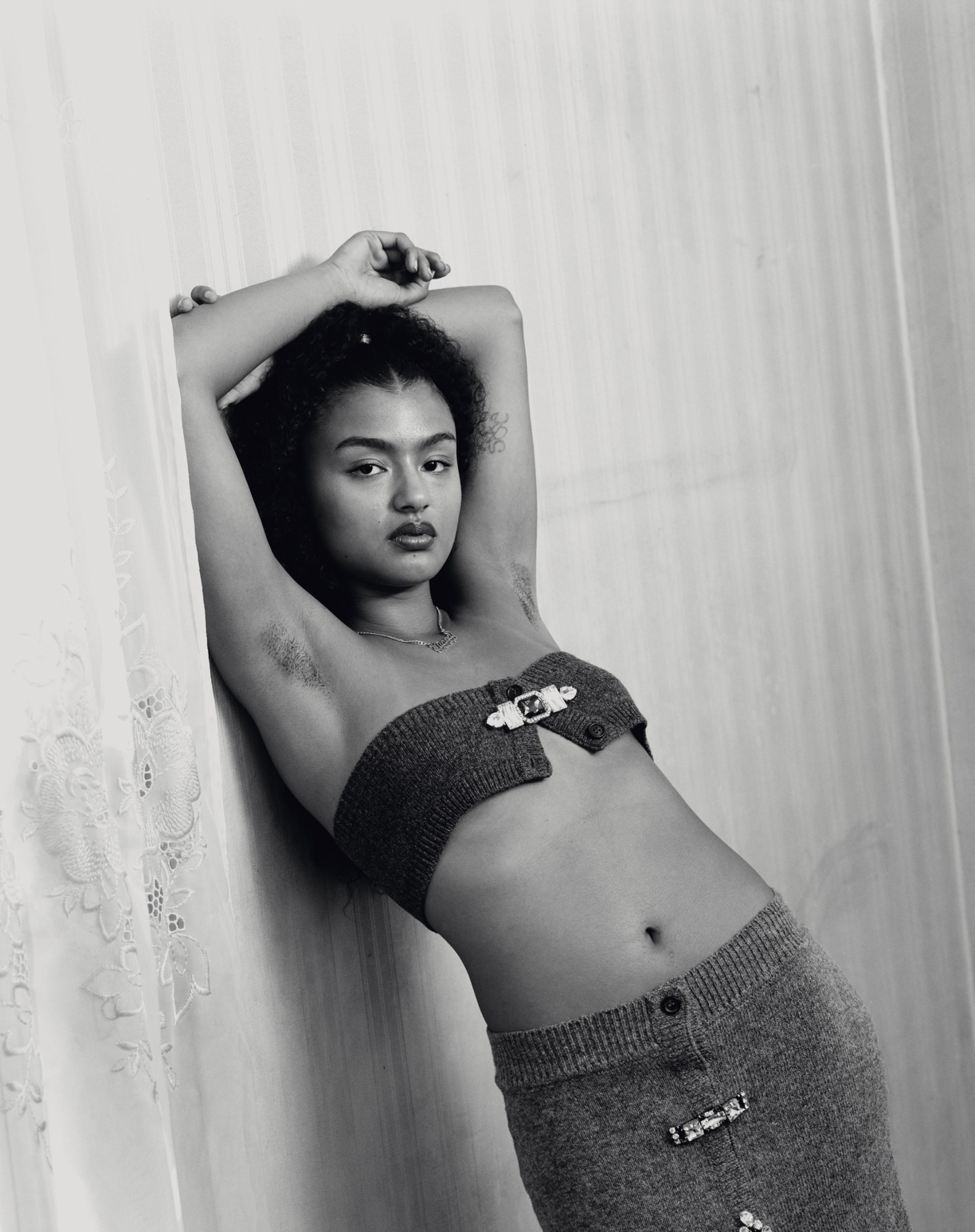

I feel like in the last couple of months, not just in America, but globally, socially and politically, we’ve seen a lot of changes in fashion. How do you see fashion changing right now? And how do you see it changing in the future?
Sage: I just love seeing Black designers getting some shine because we weren’t really getting that before. I think as Black designers get more and more popular, you will begin to see that the cards that we are dealt are very different; we’re coming with a different intention and it hits people differently. When I first saw Pyer Moss, I was like, ‘Oh, this is cool’. I can see the nostalgia in it, whether the prints are reminiscent of your grandmother’s house or whatever.
Paloma: I think the last six months have changed how we interact with clothes. In the last six months I’ve probably worn ten outfits and still felt fly, still felt like myself and still felt good. Personally, I love to shop. I love that new thing, but why do I want that new thing? I think we are now thinking about the why and the what. What do you want to hold onto? What statement? Fashion is so powerful because it’s the way in which you can armour yourself in the world. We all have very different experiences, especially as Black and Brown people, and that informs so much. It’s not just clothes. It’s survival, but what does that survival mean? It’s inspired me to look at what I want to line my closet with.
Ama: Part of me is also at the very beginning of feeling like I have control with how I look, how I present myself and how I play with both sides of myself. It’s very important to me to be able to express both my femininity and my masculinity – clothes are a big part of that.
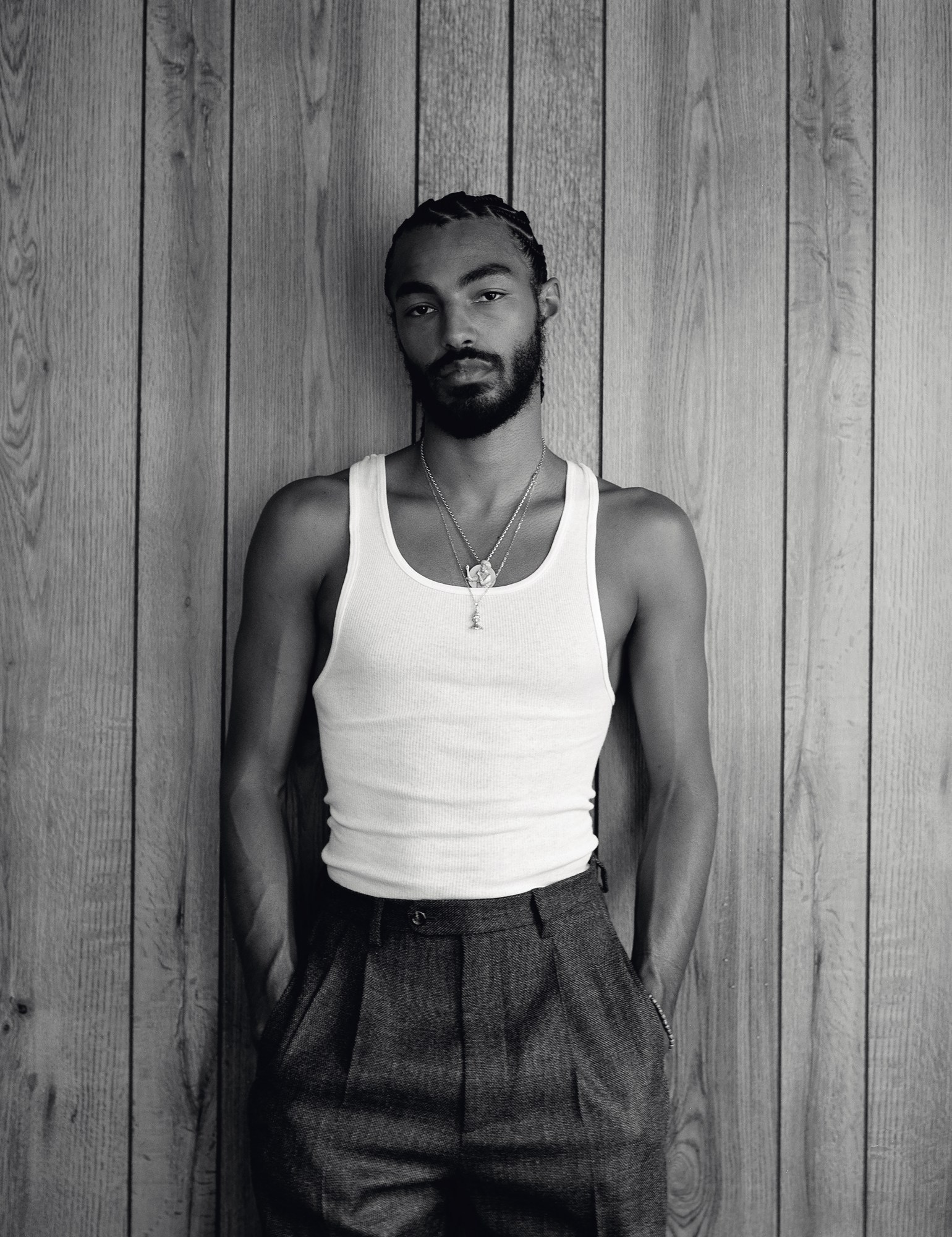
As individuals we are investing when we buy a T-shirt — who is it that we want to invest in? As your careers grow, there’s going to be more companies wanting to align themselves with you. Who is it that you want to be working with and what are your deal breakers?
Sage: That’s something that I value about Supreme. I grew up there. It holds a special place in my heart. But moving forward, it’s really just the people… anything Black-owned. Anything where there’s a creative Black mind involved. I’m not limiting my shit, just keeping an open mind.
Paloma: I think it’s the intention. What’s hard about living in a white supremacy-driven world is that no entity, even Black or Brown entities, can escape it. I’ve worked with problematic brands, but by working with this problematic brand, do I get to buy a home that I can put my Black mother in and ensure that she’s going to be okay? Partnerships are really contingent on value. More recently, I’ve had to excavate and itemise my own personal values, like self-worth in reference to the gaze of whiteness, brands and fashion. Did I just make a bag or did I make a difference? I want to do both. My agents will ask who the other girls on a shoot are, and I’m like, ‘Why are there no other Black girls there?’ Or ‘Why am I the only Black girl?’ I’m very light-skinned. I’m a mixed Black woman who doesn’t even represent every spectrum of Blackness. But I do get to be like, ‘Why is this not happening?’ The fashion industry can be a really powerful platform and example of how to transform the way that people feel about themselves, and the way that people can live in this world.
Ama: When I walk into a shoot, I ask myself, ‘Am I doing enough for my queer and trans Black friends?’ That’s the first thing I think about. I have to make space for other people. When I get hired for something and I’m the only Black person there it feels very watered down. Even choosing me as the non-binary person when I’m very femme presenting — not that that has anything to do with your gender — but it’s just the most digestible when everything is so complex. When I go and I do a job, I redistribute my money and donate to wherever I can with whatever I can. I think just your existence as individuals in each field that you’re in is creating the space for the next.
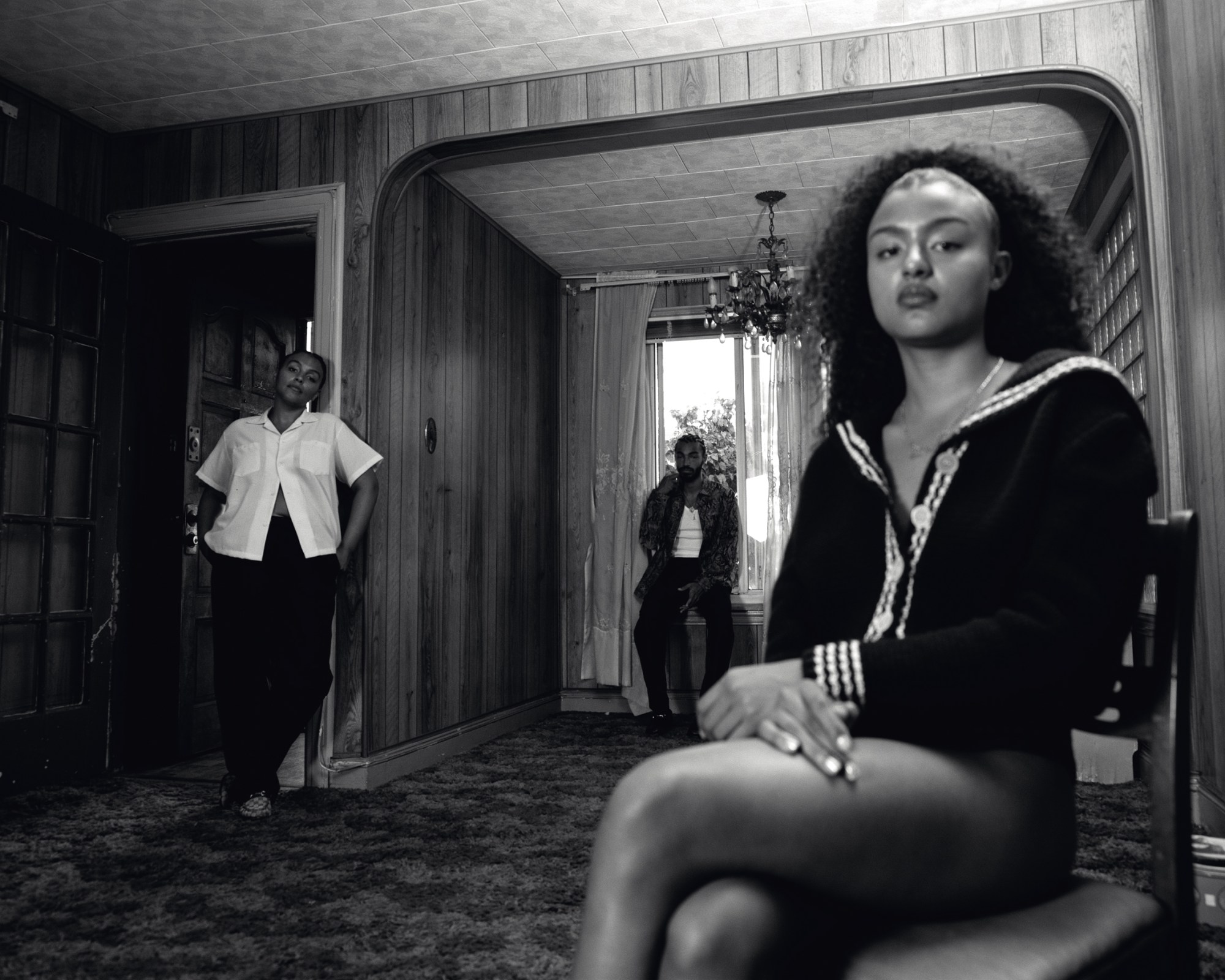
Your very existence is trailblazing. One of the big themes for this anniversary issue is legacy. I hear a lot of talk about your ancestors and I see what’s been handed down to you individually. Sage, Ama and Paloma, what is it that you want to hand down as individuals?
Ama: I think that the best legacy would be to live what dad and mom put in our head – that whatever we are, we’re good.
Sage: I just want other kids to embrace who they are. If I can, I want to inspire a kid through my music or through skateboarding to embark on whatever journey they want to embark on in their life.
Paloma: I hope my legacy is an affirmation of the fact that there’s no ceiling to what you think could happen, and what’s meant for you is for you. I would have never thought that this is what I would be doing, but this is what’s been provided for me and it’s a life beyond my wildest dreams. I think that if that is affirming or inspiring to anybody who never felt like they saw themselves, never thought it was possible, I hope that myself and my siblings get to be the example of that… We’re always evolving and always changing, and I feel really lucky to be on this journey with them.
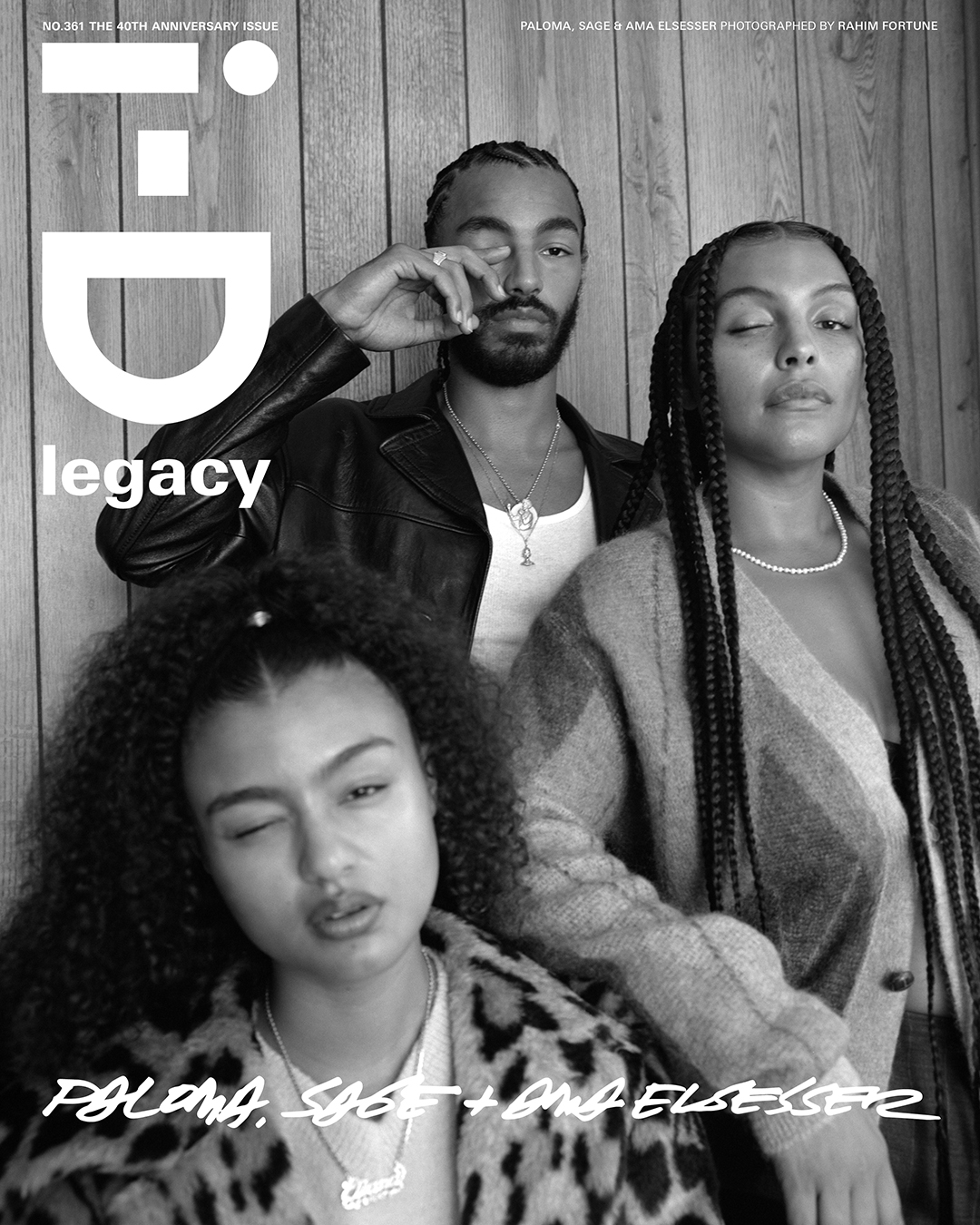
Credits
Photography Rahim Fortune
Styling Alastair McKimm, Madison Matusich, Milton Dixon and Sydney Rose Thomas
Hair Tashana Miles at The Chair Beauty Loft for The Chair Beauty Products.
Make-up Kanako Takase at Streeters using Addiction Beauty.
Photography assistance Michael W.
Styling assistance Nuvany David.
Hair Assistance Danyelle Osborne and Elizabeth Gibson.
Make-up assistance Kuma.
Production Nicole Van Straatum, Sara McDowell and Halle Chapman-Tayler.
Casting director Samuel Ellis Scheinman for DMCASTING.
Models Paloma Elsesser at IMG, Ama and Sage Elsesser.
